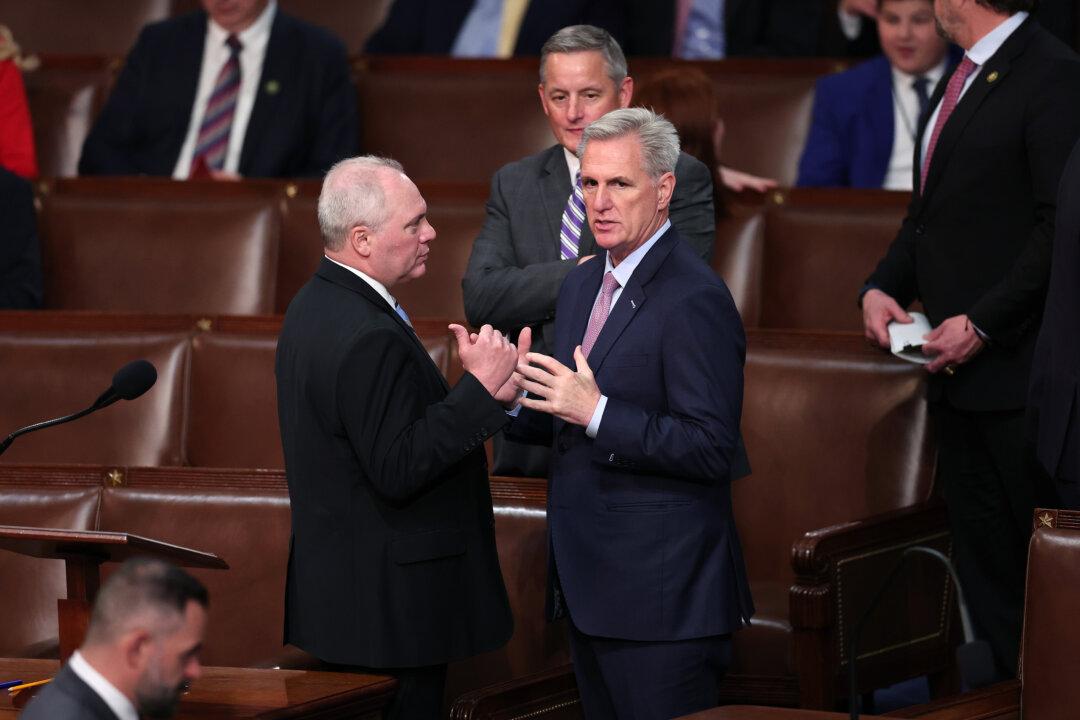Four days, 14 votes, no Speaker of the House. But, with the chamber adjourned for the afternoon, a 15th vote is set for 10 p.m. Friday after 14 of the 20 Republican representatives who’d refused to support Rep. Kevin McCarthy’s (R-Calif.) tortured bid for the post agreeing to do so—for now.
“I know you’re all wondering what changed the vote,” Freedom Caucus Chair Rep. Scott Perry (R-Pa.) told reporters in a chaotic gaggle after the House recessed, revealing there is a tentative “framework of an agreement in good faith that allows us to keep moving forward.”
Perry would not elaborate on what that “framework” is, but said the agreement with McCarthy would make Congress a more functional, responsive body.
“Every single one of us has said—and knows just what the American people know—that this place is broken and is operating on behalf of the status quo, which serves this town and not the American people,” he said. “And each one of us made a commitment [to do so]. Because the time is right, to make that change—and we weren’t going to move from that position until the change is made.”





